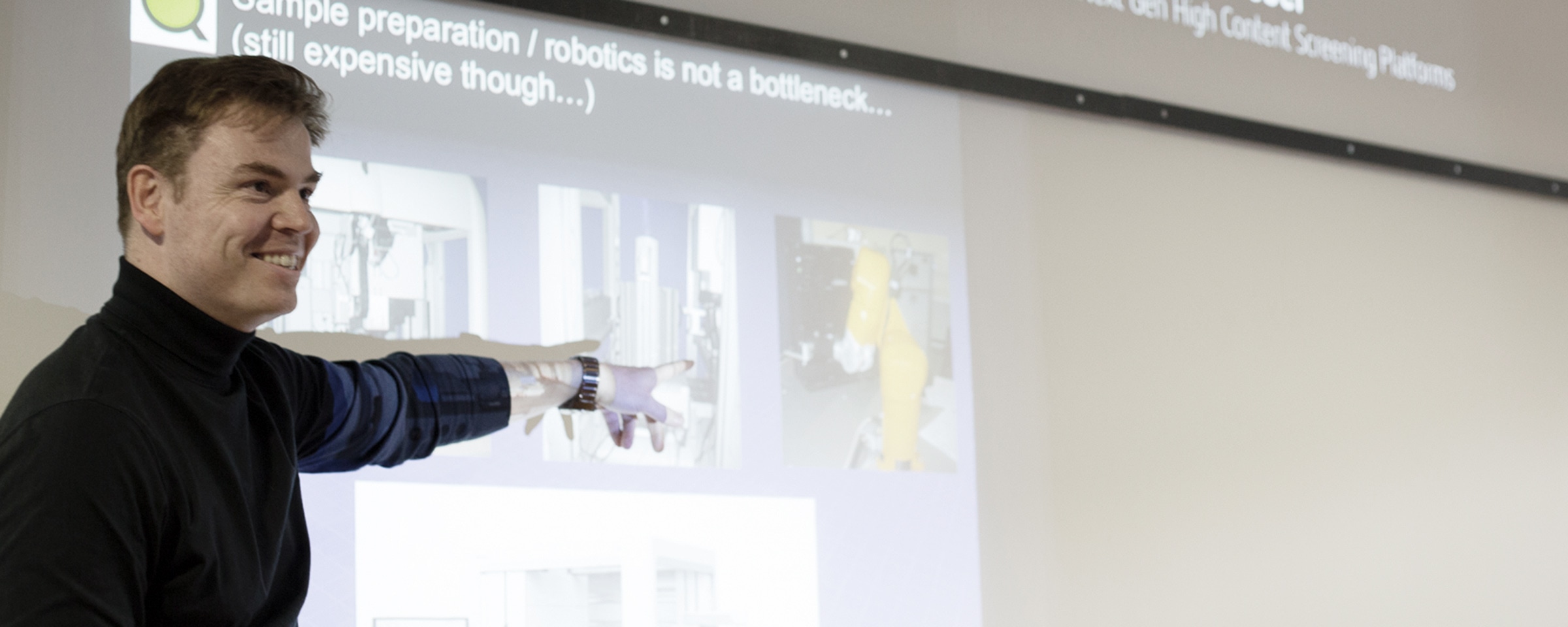
 Markus Turber
Markus Turber

11.04.2014
Lab Talk: Next Gen High Content Screening Platforms, with Dr. Urban Liebel
We were pleased to welcome Dr. Urban Liebel for an Intuity Lab Talk. Urban dedicated himself to accelerate processes in biotech labs – mainly focusing on research using zebrafishes as model organism. He is co-founder and CTO of Acquifer AG – a company that develops high-content-screening-platforms for primarily image based life science research.
Interdisciplinary challenges for lab automation
While working on his biotech research projects with zebrafishes, his team realized soon that a remarkable amount of time has to be spent on cultivating and imaging the fish. Over the years they developed many tools for lab automation including various lab robots and an automated high-content screening microscope. With his background in biology and electrical communication engineering and a network of high professionals Urban took on this challenge.
The future of high-throughput/high content genetic research and drug testing
Building the next generation of microscopes for future demands of life science research is challenging. It is about excellent optics, precise positioning, keeping assays at constant temperature, full control of emitted photons for imaging and storing the huge amount of data at high speed. And all of that integrated in a programmable and fully automated framework.
For us, this microscope offers a great opportunity for testing the application of machinetalk, an initiative with the goal to enable everyone to program machines – here a microscope – with JavaScript.
Automated microscopes allow large (drug) screening experiments within reasonable time in the zebrafish larvae model. This technology requires zero animal experiments (in terms of legal requirements) and therefore is a key technology for modern life science research.
With automated testing frameworks the amount of valuable data will increase. Why not getting all out of it by sharing and public access? Of course, data for commercial use will still be private or shared in internal networks. However, public access to data can boost progress in life science discoveries and may lead to complete new models of license models and ownership.
In times of industry 4.0 or smart factory automated frameworks for laboratories will enable seamless data flow from initial substance testing to market rollout, speed up those processes and that cost-effectively.
Thank you Urban for the inspiring talk that let us rethink life science research!